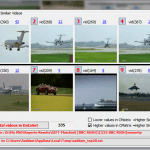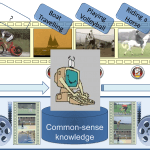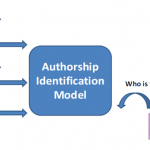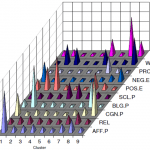The paper “Compact Signature-based Compressed Video Matching Using Dominant Colour Profiles (DCP)” has been accepted in the ICPR 2014 conference http://www.icpr2014.org/, and will be presented in August 2014, Stockholm, Sweden.
Abstract— This paper presents a novel technique for efficient and generic matching of compressed video shots, through compact signatures extracted directly without decompression. The compact signature is based on the Dominant Color Profile (DCP); a sequence of dominant colors extracted and arranged as a sequence of spikes in analogy to the human retinal representation of a scene. The proposed signature represents a given video shot with ~490 integer values, facilitating for real-time processing to retrieve a maximum set of matching videos. The technique is able to work directly on MPEG compressed videos, without full decompression, as it utilizes the DC-image as a base for extracting color features. The DC-image has a highly reduced size, while retaining most of visual aspects, and provides high performance compared to the full I-frame. The experiments and results on various standard datasets show the promising performance, both the accuracy and the efficient computation complexity, of the proposed technique.
Congratulations and well done for Saddam.















